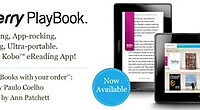Everything evolves in order to compete for survival and the publishing world is no different. From the days when authors had their works transcribed by hand, to authors publishing their works serially in periodicals, to the current traditional model of finding a literary agent who would in turn market the book to editors and publishers, the concept of writing and publishing a book has adapted exponentially.
The current standard for traditional publishing means an author writes and revises a manuscript, endures the process of finding an agent who is willing to do the leg-work of selling the manuscript to a publisher, who then must make the painstaking evaluation of the manuscript in terms of its marketability. While the author may have written the book as a creative labor of love, for everyone else involved, dollar signs are the standard. As well it should be, since none of the people involved in bringing a book to print can sustain their business models if they don’t translate the words on the page into money in the bank.
For many authors, the current trends in self-publishing and e-publishing have opened the door to bringing their works to life without having to “play the game” of the publishing industry. In this market, when it seems that even finding an agent willing to take on an author’s project can mean years of querying and futile efforts of trying to make connections, many authors are shifting their focus away from the business end of publishing in favor of a lower key approach that allows them to retain control over their work and spend more time writing with less time trying to become published. The end result may mean less exposure and a slower climb up the bestsellers’ lists, but for many writers, it’s a worthwhile trade.
Self-publishing and vanity presses first opened the doors for writers who didn’t want to swim in the waters of traditional publishing, but digital publishing to e-readers has opened the doors to publishing even wider. With various software available that allows authors to convert their manuscripts themselves for market, as well as digital publishing services such as Book Baby that will convert the manuscripts to every available e-reader format for a small fee, more and more authors are turning to digital publishing in an effort to forgo the traditional publishing houses.
This series of interviews with authors who have made a name for themselves in self- and e-publishing will shed some light on the reasons for the rise in digital publishing, how it has given more independence to the writer, and what it means for the future of reading.
Mercy Pilkington is a Senior Editor for Good e-Reader. She is also the CEO and founder of a hybrid publishing and consulting company.

